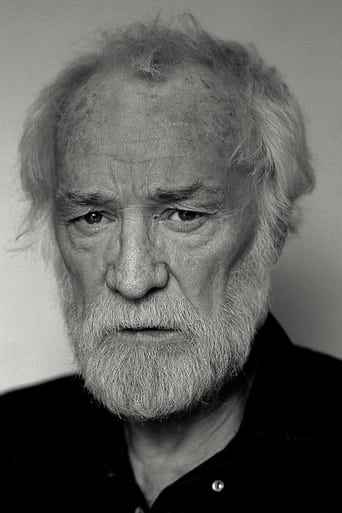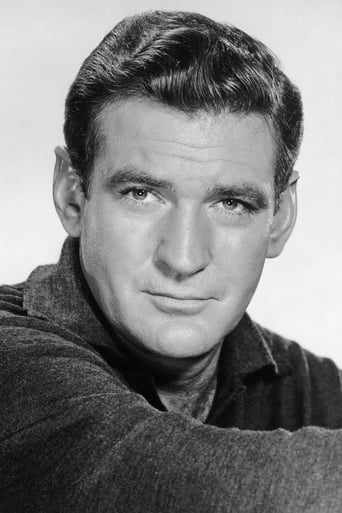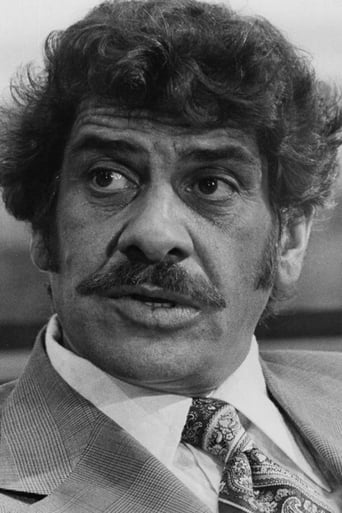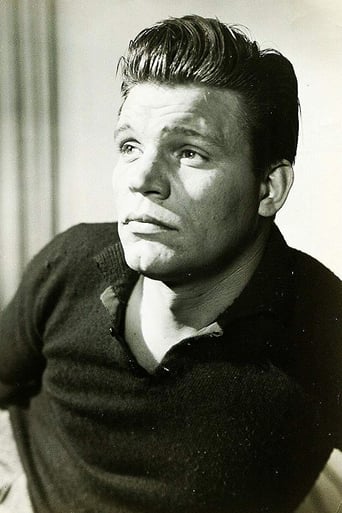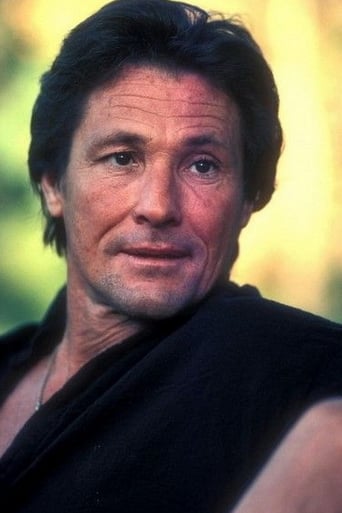Hellen
I like the storyline of this show,it attract me so much
SpuffyWeb
Sadly Over-hyped
StyleSk8r
At first rather annoying in its heavy emphasis on reenactments, this movie ultimately proves fascinating, simply because the complicated, highly dramatic tale it tells still almost defies belief.
Brenda
The plot isn't so bad, but the pace of storytelling is too slow which makes people bored. Certain moments are so obvious and unnecessary for the main plot. I would've fast-forwarded those moments if it was an online streaming. The ending looks like implying a sequel, not sure if this movie will get one
inspectors71
Sadistic trash. Barry Shear's supremely vulgar revenge western, THE DEADLY TRACKERS, is at best a replacement for Ipecac--both are guaranteed to induce vomiting. Shear has hatched (who would accuse him of direction?) a nearly unwatchable and sickeningly gory story of a pacifist sheriff (Richard Harris) whose family is murdered by four thugs (lead by a sociopathic Rod Taylor), and he rides into Mexico in hot pursuit.As the body count builds and the desecration of elderly farmers and prostitutes builds to a crescendo, one might wonder if it's okay to miss Peckinpah's repulsive but artistic THE WILD BUNCH.I choose to miss Richard Harris as Dumbledore.
Jonathon Dabell
After The Wild Bunch had pushed back a few boundaries in terms of violence, especially within the western genre, there followed a spate of similar westerns. Billy Two Hats, Chato's Land, The Hunting Party, The Revengers and The Last Hard Men were among the front-runners. Also on any list of brutal '70s revenge-westerns would be The Deadly Trackers, originally planned as a Samuel Fuller movie but completed by Barry Shear after Fuller quit the project. This violent, bloodthirsty film is, alas, somewhat disappointing.Irish sheriff Sean Kilpatrick (Richard Harris) looks after the Texas town of Santa Rosa and has made a point of solving crimes and capturing criminals without resorting to violence. In fact, he has never in his life fired a gun in anger, yet has somehow fostered total law, order and respect among the townsfolk. His methods are tested to the limit when outlaw Frank Brand (Rod Taylor in a surprisingly sadistic performance) and his gang rob the local bank. During their escape attempt, the outlaws inadvertently kill Kilpatrick's own wife and child. Devastated, Kilpatrick ditches his anti-gun, anti-violence attitude and pursues Brand and his cronies. The chase leads to Mexico, where Kilpatrick has no official authority and is viewed as little more than an outlaw himself. The Irish sheriff tracks down and kills Brand's gang one-by-one, until just he and Brand remain.Just a year earlier, Barry Shear had made the film Across 110th Street, regarded as the most violent movie ever made up to that point, so it's perhaps no surprise that this film emphasises the gore and brutality to the extent it does. Harris is quite memorable as the Irish sheriff, giving another of his energetic performances, and Taylor's villainous turn reveals an ugly side rarely portrayed by the actor in his other films. However, in most aspects The Deadly Trackers fails to make the grade as a good, worthwhile film. It is far too simplistic for its own good, with no resonance beyond the immediate plot (and the plot itself is pretty basic, being nothing more than a straightforward chase narrative). The supporting performances are generally rather lacklustre, possibly because none of the characters beyond the two principal players carry much depth or interest. Also, the story is dismayingly familiar, with precious little that it fresh or original; just lots of tired and predictable scenes that have been begged, borrowed and stolen from many other sources (even the music is lifted directly from The Wild Bunch.... perhaps to keep the budget down?) On the whole, The Deadly Trackers is a dismal misfire in which the detail to violence and the intriguing lead performances are the sole points of interest.
David Anthony
The Deadly Trackers was to be directed by the author of the original story, Sam Fuller. He was replaced by one or two other directors (identities unknown) and it was up to the dependable Barry Shear to complete the film. The opening sequence of stills and voice-overs is a liability to the overall film. My guess is that Shear, due to the chop and change of previous directors, had cobbled together pieces of their unfinished work. I would appreciate clarification of this from someone who knows. The importance of the opening sequence is that it establishes the motivation for the entire film. The violent shattering of this close-knit family drives the action - and should have given the viewer a greater appreciation of Richard Harris's despair. Otherwise Shear's film is an excellent thought-provoking western with an excellent performance by Al Lettieri playing the sheriff as the revenge-seeker's conscience. Vigilante theme worth comparing to films like Dirty Harry which was released two years earlier and set a trend in American cinema.Memo: Whoever wrote the line `He shot the roses from her cheeks' should have been shot himself.
Clarke-2
This is one of those films that lovers of the Western genre ought to rent on video. They will discover a treasure of the past that is well worth a watch. Like most Westerns, this film is set in the 1870s American southwest. The story of vengence is common in Western films, and this particular tale is extremely brutal. The post civil war Southwest was a violent place full of vigilantism and crime. Men of the West with morals and a sense of social responsibility always served as easy prey for bushwackers.The Deadly Trackers is focused on two men who share an over-developed sense of justice. They are both sheriffs, and they both embraced the importance of the law. One of the sheriffs loses his family, however, and his ideals die with them. The best part of this film is the relationship that builds between the two sheriffs as they hunt a small band of bushwackers. Richard Harris's character is the embittered sheriff bent on vengence. His character sinks into being as cruel and violent as the men he hunts. The Mexican sheriff, who lacks personal loss, maintains an ideal sense of keeping law and order. In the end, Harris's character regains his values for upholding the law only to see justice slip out of his grasp. The Mexican sheriff remains constant in his efforts to enforce the law only to provide for a lack of justice. The result is a dark tale about the nature of mankind on the frontier.

